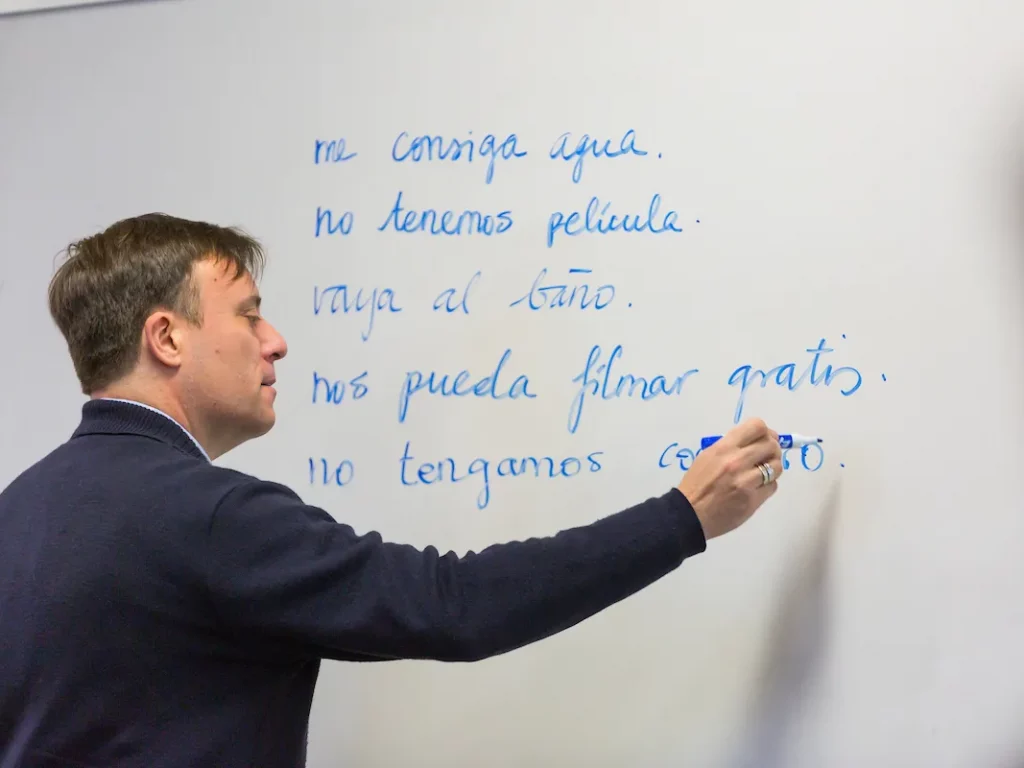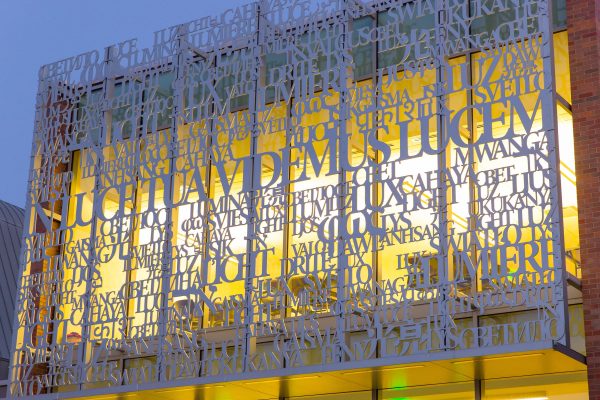Major in Spanish

Why Spanish at Valpo?
Did you know that Spanish is the second-most spoken native language in the world, and the number of speakers only keeps growing? With the demand for bilingual professionals in the United States on a constant rise, adding Spanish to your language portfolio sets you apart from the crowd. Our graduates pursue careers in business, nonprofit foundations, healthcare, social work, and teaching, among many other fields.
At Valpo, our highly involved Spanish faculty use their industry experience to deliver in-depth language and cultural education for both our major and minor. A small student-to-professor ratio allows for in-depth, personalized courses such as advanced language, literature, environmental topics, Spanish through the media, and more. In addition, students have access to a number of academic and cultural resources at the University and around the world.
Here’s your invitation: ¡Vive, aprende, explora y conoce!
Spanish Major Highlights
Combinability
Many students at Valpo combine their Spanish major with a second major or minor program to prepare for a variety of careers such as business, global service, or education.
Immersive Learning
Take education beyond the classroom with purpose-driven internships, experiential learning, and study abroad opportunities in Spain, Costa Rica, Chile, and Mexico.
Community
Valpo hosts a thriving Spanish language community including Spanish-language publications, numerous clubs, our language-immersive Spanish House, and more.
Spanish Major Requirements
Take a look at our Spanish Major Career Map, which contains detailed, per college year information on courses to take, co-curricular and community initiatives, steps to study abroad and career preparation.
- Bachelor of arts in Spanish students at Valpo must complete the general-education requirements for the bachelor’s degree in addition to the requirements for the major. This University-wide core strengthens communication and critical-thinking skills while introducing the student to global cultures and traditions.
- For transfer students, four-credit language courses can be transferable. Other sequences are taken case-by-case for the maximum benefit of the student.
- Students who plan to teach Spanish in elementary, middle, or secondary schools with a major or minor in Spanish should consult their departmental advisor and the education department for specific requirements.
- Students who place directly into a course higher than level 204 need not complete level 204 but must complete all other requirements for the major, including the required total of 27 credit hours.
| Major Requirements: 54-55 Credits | ||
|---|---|---|
| SPAN 204 | Intermediate Spanish II | 4 Cr. (3+1) |
| SPAN 210 | Advanced Communication in Spanish | 3 Cr. |
| One Course From the Following Options: | ||
| SPAN 230 SPAN 231 SPAN 232 |
Spain: Studies in Culture and Society Latin America: Studies in Culture and Society Hispanics in the US: Studies in Culture and Society |
4 Cr. (3+1) |
| 15-16 Additional Credits in Spanish Beyond SPAN 203: | ||
| SPAN 270 | Spanish Conversation | |
| SPAN 290 | Spanish for Heritage Speakers | |
| SPAN 291 | Topics in World Cinema (taught in English) | |
| SPAN 300 | Special Topics in Translation (taught in English) | |
| SPAN 303 | Professional Communication in Spanish | |
| SPAN 306 | Contemporary Social Issues in Hispanic Media | |
| SPAN 307 | Spanish for Business | |
| SPAN 308 | Spanish for Community Engagement | |
| SPAN 309 | Latinx Studies | |
| SPAN 310 | Spanish for Health Professions | |
| SPAN 311 | Intro to English-Spanish Translation and Interpretation | |
| SPAN 312 | Spanish for STEM Professions | |
| SPAN 320 | Hispanic Cultural Studies (formerly SPAN 220) | |
| SPAN 321/322 | Literature of Spain/Latin America | |
| SPAN 390 | Seminar in Spanish | |
| Additional Required Courses: | ||
| SPAN 499 | Capstone Senior Project | 1 Cr. |
| Total (Minimum): 27 Cr. | ||
- Students who place directly into a course higher than level 204 need not complete level 204 but must complete all other requirements for the minor, including the required total of 14 credit hours.
| Minor Requirements for Spanish | ||
|---|---|---|
| SPAN 204 | Intermediate Spanish II | 4 credits |
| One course from the following options: |
|
3-4 credits |
| Six to seven additional credits in Spanish beyond SPAN 203; at least one course at the 300 level or higher
|
6-7 credits | |
| TOTAL (Minimum) |
|
14 credits |
Spanish Career Outcomes
Language skills are increasingly in demand across a variety of industries and studies show bilingual employees earn more on average in addition to experiencing greater rates of promotion.
Careers in Spanish:
- Educators
- International business
- International sciences
- Marketers
- Social workers

ESTEEMED FACULTY
Multiple grants enabled our professors to publish and present scholarly work, diversify our curriculum, develop open-access materials for language classes, and foster both community and engagement, among other triumphs.

